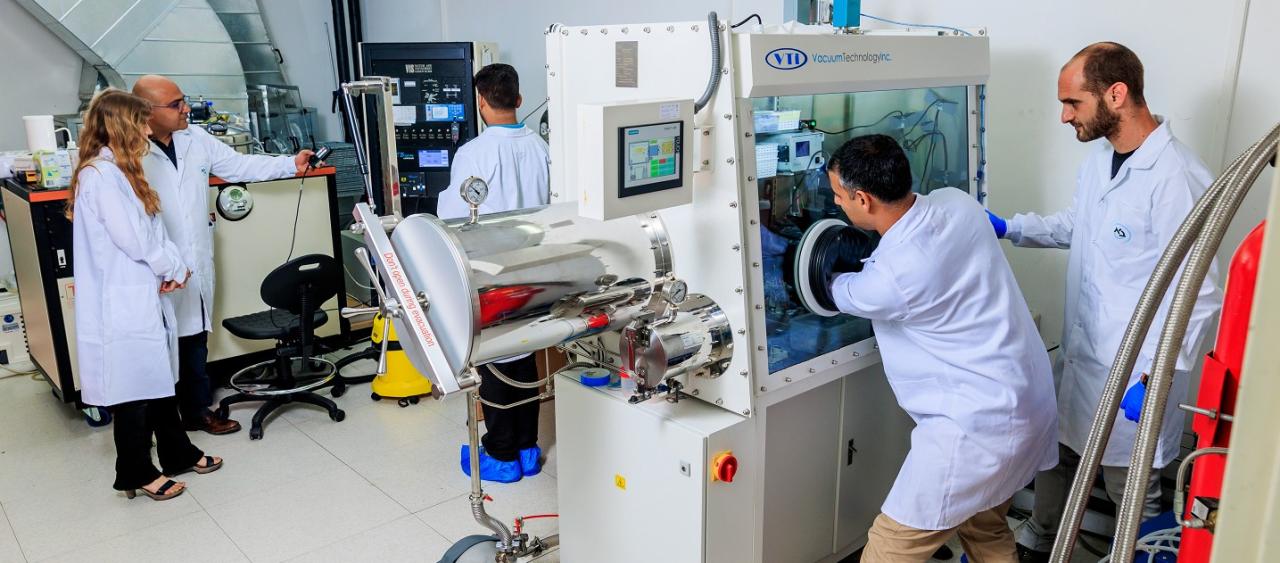Materials Engineering: Single major B.Sc

Our Bachelor of Science in Materials Engineering program is committed to providing students with a comprehensive education that equips them with the knowledge, skills, and ethical foundation necessary to excel as materials engineers in a rapidly evolving and technologically diverse landscape. Our mission is to foster a learning environment that encourages curiosity, innovation, critical thinking, and a strong sense of ethical responsibility, prepares graduates to contribute significantly to the materials engineering field, and confronts pressing social and technological challenges.
Our program aims to provide a solid knowledge base, promote hands-on learning, encourage innovation, develop problem-solving skills, teach ethical responsibility, inspire interdisciplinary and international collaboration, foster understanding and adaptation to emerging technologies, and teach communication skills and career preparedness.
By adhering to these principles, we cultivate graduates who are not only technically skilled but also have the creativity, ethical awareness, and collaborative mindset necessary to contribute to the advancement of materials engineering, shape the future of technology, and positively impact society.
Materials engineering is a fascinating field that combines engineering with physics, chemistry, and computer science. It has many applications in the world of high technology and advanced industries. Without materials engineering, we would probably not have enjoyed computers, communication, cellular phones, energy conversion systems, optical fibers, sensors, lasers, batteries, airplanes, aerospace, engines, LCD screens, implants and prostheses, heart valves, or chips.
What is materials engineering, and what does it entail?
Materials engineering is the investigation, discovery, design, invention, improvement, and selection of the best materials from the thousands of materials available to us—polymers, metals, ceramic, composite materials, conductors, semiconductors, insulators, magnets, nanomaterials and more—to create optimal devices, infrastructures, systems, and products. The choice of material for product development is based on a complete set of knowledge and considerations found in the materials engineer's toolbox. This includes considering the material's physical, chemical, electronic, and mechanical properties of the material, its composition, its structure, its unique characteristics, and interaction with other materials.
Materials engineering answers the challenges of strength-to-weight ratio, flexibility, and elasticity versus strength. It tackles the challenges of environmental wear, abrasion, and mechanical fatigue versus durability. It aims to miniaturize significant electronic components, and the world depends on it to perform complex quantum calculations and produce and store renewable energy.
Program objectives
Materials engineering studies at the Faculty of Engineering at Bar-Ilan University is a four-year program designed to train skilled materials engineers in mathematics, physics, computer programming, and materials science. The academic standard practiced at Bar-Ilan’s Faculty of Engineering places its graduates at the forefront of the industry alongside the topmost materials engineers in Israel and the world, working at the cutting edge of advanced and high-tech industries, leading research in the field and championing breakthrough developments.
A degree program in materials engineering at the Faculty of Engineering at Bar-Ilan University provides students with a broad and solid academic knowledge of the scientific and technological foundations of materials science, enabling them to develop crucial skills for coping with the challenges of the modern materials technology, both in industry and in academia. Students are equipped with the necessary tools for implementing engineering planning, which responds to particular needs based on economic, environmental, cultural, global, and social considerations and considers safety, welfare, and public health.
Specialization tracks within a materials engineering degree
Starting from the third year, every student in the materials engineering studies track at Bar-Ilan will choose one of the following four tracks, each combining two streams of knowledge:
1. The Computational Devices track combines electronic devices, materials studies, and computational materials science. This track is oriented toward elite technologies in electronics and optoelectronics, complete with the foundations for quantum materials and devices. It provides an innovative scientific-engineering environment for integration into industry, start-up companies, and research and development roles.
2. The Electronic Devices and Processes track combines electronic, optoelectronic and quantum devices combined with materials studies. This track focuses on synthesis methods, material characterization, and nanotechnology, emphasizing the processes encountered by the industry’s materials engineers.
3.The Computational, Sustainability and Energy track combines the study of sustainability and environmental materials and computational materials science. This track includes sustainability and energy and software engineering, computer engineering, data science, and materials science courses. Students will be trained in applications of calculation technologies and algorithms in materials engineering and study technologies and materials, emphasizing sustainability and environmental aspects in materials science.
4. The Sustainability and Processes track combines the study of sustainability and environmental materials and the chemistry of materials. This track provides a broad education in energy, environmental quality, and advanced technologies based on the reuse of materials and the production and development of innovative materials with ecological aspects. Students also learn about cutting-edge technologies for producing, converting, and transmitting energy.



